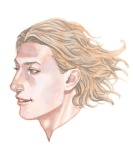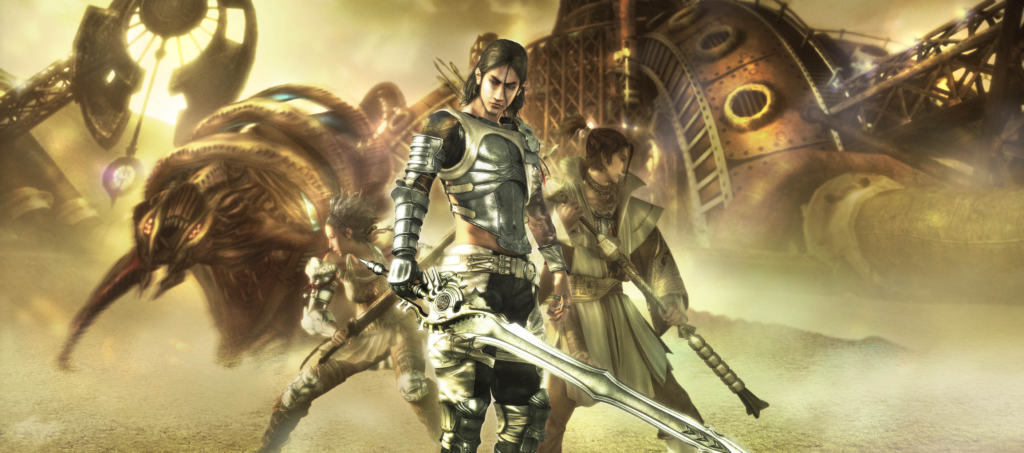

The rest of the cast isn’t as interesting, and can seem mostly underdeveloped, especially, the main character Kaim, who is so “emo” it becomes annoying: all his dialogues can be resumed to a series of careless, dry, uninteresting one-liners. Jansen, a womanizer with the appetite for booze and prostitutes is delightfully funny Seth, a cynical pirate that is Jansen’s complete opposite, picks on him throughout the game making them a great duo for any comedic act and then there’s Sed, Seth’s son, an elderly pirate that still calls his mother “Momma”. Yet, the old Sakaguchi charm still manages to creep up, with a cast of touching and funny characters giving the story a much needed interest. No plot twists, no grand finale, no hidden meanings, no nothing. The plot is so obvious and dull it hurts: in the first few hours it will be plainly obvious who the bad guys are and what they’re plotting, and what the good guys’ purpose is. Sakaguchi’s scenario is really poor, so much that it pains me to write so. Of course, the reason why the world is at war is rather simple: there is a powerful and somewhat mad wizard that wants to take over the world with his magic, and uses these conflicts to gain power alas, nothing new on this front. It is set in a high fantasy scenario with sci-fi elements, in everything similar to that of “FFVIII”, where a number of political conflicts have engaged the world’s countries in a series of wars. “Lost Odyssey” is the tale of Kaim Argonar, an immortal man that has lived for over a thousand years. So, the question that needs answering is: how does “Lost Odyssey” stack up when compared with the “Final fantasy” legacy? So, “Lost Odyssey” was released with little fanfare: reviewers everywhere dismissed the game as mild effort to repeat the “Final Fantasy” formula once more, and the hardcore fan-base of the 360 wasn’t mildly interested in a classical JRPG. “Blue Dragon” came out, and those expectations faded: it featured an archaic battle system and a horribly childish script. So, when word got out that after leaving Square, Hironobu Sakaguchi formed a new company named Mistwalker, expectations reached an all time high for the “Final Fantasy” hardcore fans.


For all of the motives above, it is fair to say that FFXIII is the least expected episode in the series in many years. And though that has netted a steady flow of cash into the company, it has sprouted a wave of disbelief in the company’s standards by long-time fans. Let’s face it, after Square and Enix merged, Square’s brands have been milked far beyond comprehension: in between remakes, spin-offs, special editions and sequels, SquareEnix has released several dozens of games in the past years. Few “Final Fantasy” fans like the new course of the series, with Yasumi Matsuno’s different approach in “FFXII” and the growing number of uninspired series’ spin offs.


 0 kommentar(er)
0 kommentar(er)
